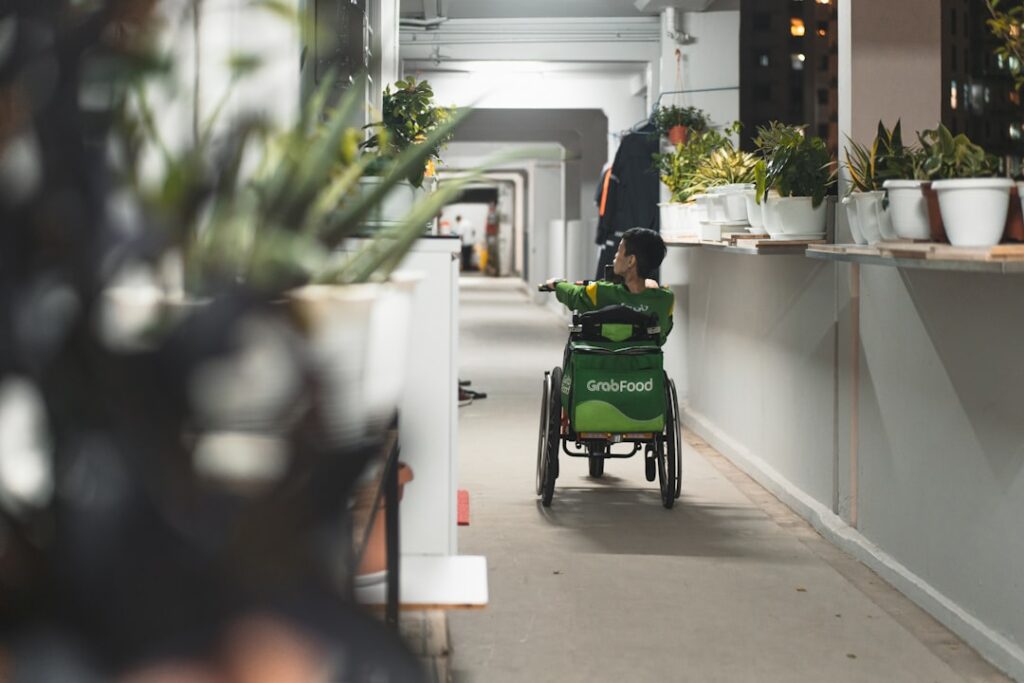The Employment Development Department (EDD) oversees the California State Disability Insurance (SDI) program, which pays out short-term benefits to qualified workers who are unable to work because of a pregnancy, illness, or injury unrelated to their line of work. For those who are momentarily unable to carry out their regular job duties, the program seeks to replace a portion of lost wages. The SDI program is intended to offer financial assistance to individuals in need and is financed by payroll deductions from workers’ paychecks.
Key Takeaways
- The California SDI EDD Program provides short-term disability insurance for eligible workers in the state.
- Eligibility for the program is based on a worker’s recent employment and earnings, as well as their medical condition.
- Applying for the California SDI EDD Program can be done online, by mail, or by phone, and requires medical certification from a healthcare provider.
- Participants in the program have the right to appeal any decisions made by the EDD regarding their benefits.
- Managing benefits and reporting requirements for the California SDI EDD Program include providing updates on medical condition and work status.
Not to be confused with the federal Social Security Disability Insurance (SSDI) program, which pays benefits to people with long-term disabilities, is the Supplemental Security Income (SSDI) program. Paid Family Leave (PFL) and Disability Insurance (DI) are the two benefit types available under the California SDI EDD program. Employees who are unable to work because of a personal illness, injury, or pregnancy that is not related to their job are eligible for DI benefits.
Conversely, PFL benefits are granted to those who require time off to tend to a critically ill family member or form a bond with a new child. The purpose of both DI and PFL benefits is to offer financial support during times of temporary disability or family leave. In order to get the assistance they require during trying times, it is critical for participants to comprehend the precise qualifying requirements & application procedure for each sort of program.
Individuals must fulfill specific eligibility requirements in order to be eligible for Disability Insurance (DI) benefits through the California SDI EDD program. Applicants must, first and foremost, be unable to work as a result of a pregnancy, illness, or injury unrelated to their jobs. The base period, which is normally the first four of the final five completed calendar quarters prior to the filing of the claim, also requires them to have earned a minimum amount of wages. Also, applicants must be receiving medical attention from a licensed healthcare professional who can vouch for their incapacity to work and disability.
| Metrics | Data |
|---|---|
| Number of applicants | 10,000 |
| Approval rate | 75% |
| Average processing time | 30 days |
| Number of appeals | 500 |
To find out if they qualify for DI benefits, people should carefully review the qualifying requirements, including the documentation requirements. Also, eligible individuals must fulfill specific requirements in order to receive Paid Family Leave (PFL) benefits. For PFL benefits to be applicable, workers must be taking time off to tend to a critically ill family member or form a strong bond with a new child within a year of the child’s birth, adoption, or placement in foster care.
Candidates also need to actively participate in caring for or bonding with a family member, as well as have made a minimum wage during the base period. It is imperative that participants comprehend the particular eligibility prerequisites for PFL benefits and furnish precise and comprehensive details during the application process to ensure these benefits are obtained. There are a few crucial steps involved in applying for Paid Family Leave (PFL) or Disability Insurance (DI) through the California SDI EDD program. People must first collect the required data & records, such as their personal identification, work history, & a medical certification of their disability or need for family leave. After that, applicants have the option to mail in their claim for benefits using the paper application form or submit it online via the EDD website. For people to avoid delays or possible problems with their application, it is crucial that they provide accurate and comprehensive information when submitting their claim.
Upon filing a claim for PFL or DI benefits, applicants can anticipate hearing back from the EDD with information on the progress of their claim. If more data or supporting documentation is needed, people must reply right away to prevent delays in their claim’s processing. Participants will regularly receive benefit payments, usually every two weeks, after the claim has been approved. To ensure that they receive their benefits in a timely way, people should carefully read the information that the EDD provides and adhere to any instructions or requirements.
The California SDI EDD program may in certain circumstances deny a person’s claim for Disability Insurance (DI) or Paid Family Leave (PFL). In the event that this happens, participants are entitled to file an appeal and ask for their claim to be reviewed. Providing any additional information or supporting documentation for the benefit claim, along with filing a written appeal within the allotted time, are two crucial steps in the appeals process.
People should carefully consider the reasons for the denial and collect any pertinent documentation that could bolster their appeal. Participants may have to appear in person for a hearing before an administrative law judge to make their case after filing an appeal. People can testify at the hearing and provide proof to back up their claims for DI or PFL benefits.
It is crucial that attendees thoroughly prepare for the hearing and make a strong case for themselves. The administrative law judge will rule on the appeal after the hearing, and the decision could either reinstate the initial denial or approve the benefits. People should carefully read the ruling and weigh their options for bringing their claim forward. Following approval for benefits under the California SDI EDD program, participants must manage their benefits and meet specific reporting requirements for Disability Insurance (DI) or Paid Family Leave (PFL).
This covers disclosing any money received while receiving benefits, as well as any modifications to their health or capacity for employment. If reporting requirements are not met, there could be potential problems with the claim or an overpayment of benefits. To prevent any problems with their benefits, people should carefully read the reporting requirements and heed any guidance given by the EDD. It is also the responsibility of participants receiving DI or PFL benefits to manage their benefit payments & comprehend how they are computed. Benefit amounts are subject to a maximum weekly benefit amount set by law and are based on a person’s earnings during a specified base period.
It is imperative that beneficiaries thoroughly examine their benefit payment notices and comprehend the methodology behind the calculations to guarantee they are obtaining the accurate amount. In addition, people should be ready to notify the EDD of any pertinent information and be informed of any potential changes to their eligibility for benefits. In the event that participants in the California SDI EDD program recover from their disability or finish their family leave, they may eventually return to work after receiving Disability Insurance (DI) or Paid Family Leave (PFL) benefits. People should be aware of how going back to work could affect their benefits and what actions they must take to make the adjustment back into the workforce.
To prevent overpayment or other possible problems with their claim, for instance, recipients might have to disclose their return to work & any income they made while receiving benefits. People who have received DI or PFL benefits and are going back to work should also be aware of any potential changes to their eligibility for future benefits. For instance, a person might have to fulfill particular requirements in order to be eligible for benefits once more if they get a new disability or require more time off with their family within a given period. Participants should carefully review the eligibility requirements and comprehend the potential impact that going back to work may have on their future eligibility for DI or PFL benefits. The Employment Development Department (EDD) oversees the California State Disability Insurance (SDI) program. Participants in this program have access to a range of tools and services that can assist them in navigating the program & comprehending their obligations as beneficiaries.
In-depth eligibility requirements, application guidelines, & frequently asked questions are just a few of the many resources available on the EDD website regarding the SDI program. For any specific queries or worries regarding their claim for Disability Insurance (DI) or Paid Family Leave (PFL) benefits, participants can also get in touch with the EDD directly through phone or email. Apart from the official resources furnished by the EDD, individuals may find it advantageous to pursue assistance from advocacy groups & legal services that focus on disability rights and benefits.
These organizations can offer helpful advice and support for handling benefit payments, comprehending reporting requirements, and navigating the appeals process. Through support groups & community networks, participants can also make connections with other people who have gone through the SDI program. Through the utilization of these resources and support services, participants can acquire essential knowledge & aid to effectively navigate the California SDI EDD program and obtain the necessary support during difficult times.
If you are interested in learning more about effective communication in the context of California’s State Disability Insurance (SDI) and Paid Family Leave (PFL) programs, you may want to check out this article on tips for effective communication. This article provides valuable insights into how to effectively connect with the PFL program and navigate the complexities of the system. For more information on SDI and PFL, you can also visit the EDD Caller website for additional resources and support for working families.
FAQs
What is SDI EDD California?
SDI EDD California refers to the State Disability Insurance (SDI) program administered by the Employment Development Department (EDD) in California. It provides partial wage replacement benefits to eligible workers who are unable to work due to a non-work-related illness, injury, or pregnancy.
Who is eligible for SDI EDD California benefits?
To be eligible for SDI EDD California benefits, an individual must have earned a certain amount of wages in a specific period and be unable to work due to a qualifying disability. Additionally, the individual must be under the care of a licensed healthcare provider.
How do I apply for SDI EDD California benefits?
To apply for SDI EDD California benefits, individuals can submit an application online through the EDD website, by mail, or by phone. The application will require information about the individual’s employment history, medical condition, and healthcare provider.
What benefits does SDI EDD California provide?
SDI EDD California provides eligible individuals with partial wage replacement benefits for up to 52 weeks. The amount of benefits is based on the individual’s earnings during a specific period and is subject to a weekly maximum amount set by the state.
Are SDI EDD California benefits taxable?
Yes, SDI EDD California benefits are subject to federal income tax, and individuals may choose to have federal income tax withheld from their benefit payments. However, these benefits are not subject to California state income tax.
Can I receive SDI EDD California benefits while receiving unemployment benefits?
No, individuals cannot receive SDI EDD California benefits and unemployment benefits at the same time. They must choose to receive either SDI benefits or unemployment benefits, depending on their eligibility and circumstances.



